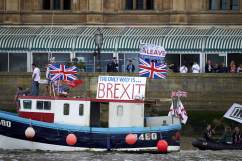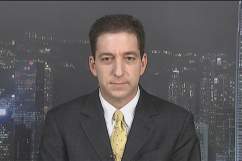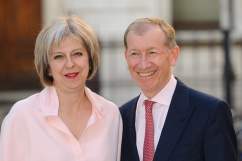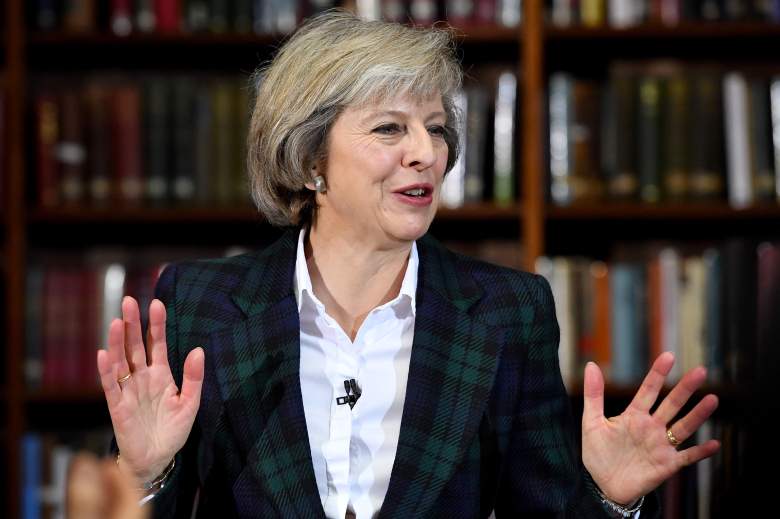
Home Secretary Theresa May announced on June 30 that she will run for the Conservative Party leadership. (Getty)
On June 30, just before the deadline to put her name in, Home Secretary Theresa May announced plans to run for the Conservative Party leadership to become U.K. prime minister and replace David Cameron. The decision came just after former London Mayor Boris Johnson took himself out of the running, even though he was a favorite to replace Cameron. Now it looks like May is the favorite, although she, like Cameron, had supported the “Remain” campaign in the Brexit referendum.
May, 59, has been Home Secretary since 2010 and was also Minister of Women and Equalities from 2010 to 2012. She also held Shadow positions and has represented the Maidenhead constituency since it was created in 1997. May was also the first female chairman of the Conservative Party, holding the position in 2002 and 2003.
May was expected to be up against Andrea Leadsom for the Conservative Party leadership. After the second round of MP votes, May earned 199 votes with Leadson, the Energy Secretary, earning 84 votes. However, Leadsom dropped out on July 11, meaning that May will become the next prime minister. She is the first female U.K. prime minister since Margaret Thatcher.
Here’s a look at May’s career and her position on Brexit.
1. May Coined the Term ‘Nasty Party’ to Describe Her Own Party
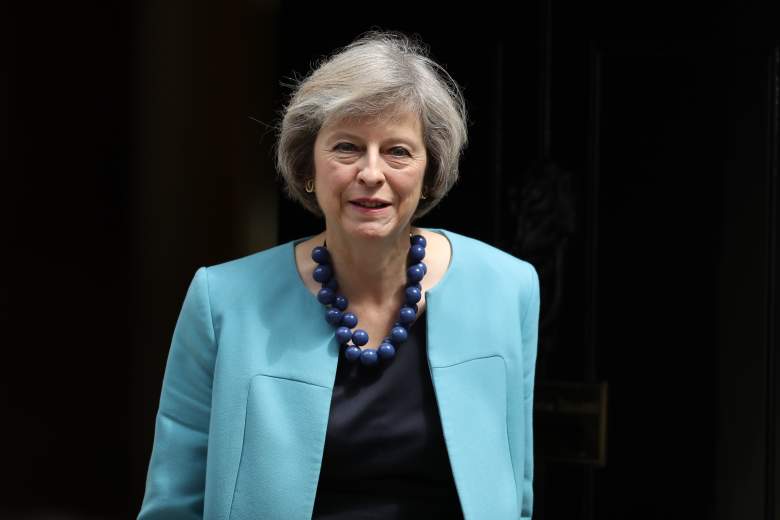
If Theresa May becomes Prime Minister, she would be the first woman in the role since Margaret Thatcher. (Getty)
After losing a series of general elections, May said in 2002 that the Tories needed to change and acknowledged that her own party was called “the Nasty Party.” She suggested that the party needed to modernize its views. Eventually, the Conservatives took power in its own right with the 2015 election. Cameron became Prime Minister in 2010, although the Conservatives failed to outright win a majority of seats in that election.
“Yes, we’ve made progress, but let’s not kid ourselves. There’s a way to go before we can return to government,” May said in October 2002, The Guardian reported at the time. “There’s a lot we need to do in this party of ours. Our base is too narrow and so, occasionally, are our sympathies, You know what some people call us: the nasty party.”
May has been described as a liberal Conservative and supports gender equality and same-sex marriage, The Financial Times noted in 2014. She did previously oppose gay adoption though.
In 2012, May recorded a video for Out4Marriage to announce her support for gay marriage. She said that she believes marriage should be “for everyone.”
2. She Had to Apologize for an Overwhelming Backlog of Passport Applications
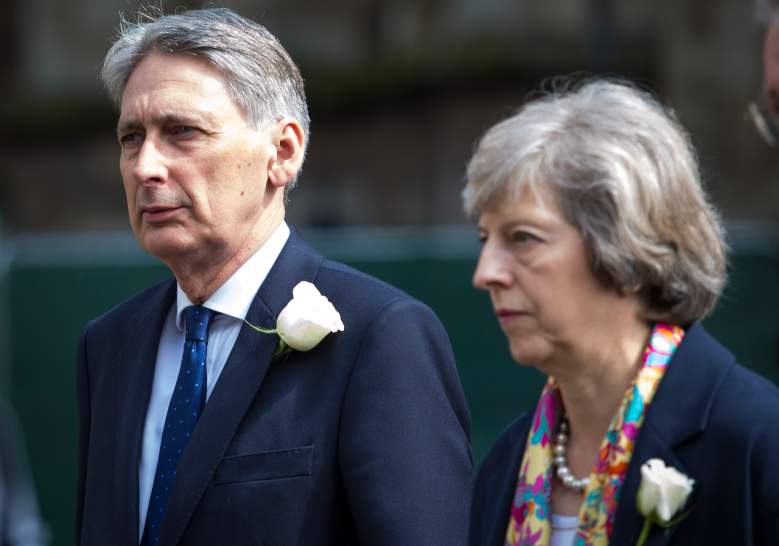
Foreign Secretary Philip Hammond and Theresa May at a rememberancce service for Jo Cox. (Getty)
May’s tenure as Home Secretary has hardly been scandal-free. In June 2014, she had to apologize as passport applications mounted without government approval, reports the BBC. There were 493,000 passport applications that piled up and 10 percent of them were not being processed within a three-week limit.
“I would like to say to anybody who is unable to travel because of a delay in processing their passport application that I am sorry and the government is sorry for the inconvenience they have suffered and we are doing all we can to put things right,” May told Parliament at the time.
She said that there would be a “fast-track” for citizens who had booked immediate travel plans.
“She has come to this late. She hasn’t had her eye on the ball,” Shadow Home Secretary Yvette Cooper said. “It is really unfair on people who have saved up everything for their holiday and now it’s being wrecked by her incompetence.”
When a new passport design was unveiled last year, Labour MP Emily Thornberry wrote an op-ed in the Telegraph blasting May for including mostly male British historical figures and only two women – architect Elisabeth Scott and mathematician Ada Lovelace.
3. She Supported Using the Terrorism Act 2000 to Detain Glenn Greenwald’s Partner David Miranda
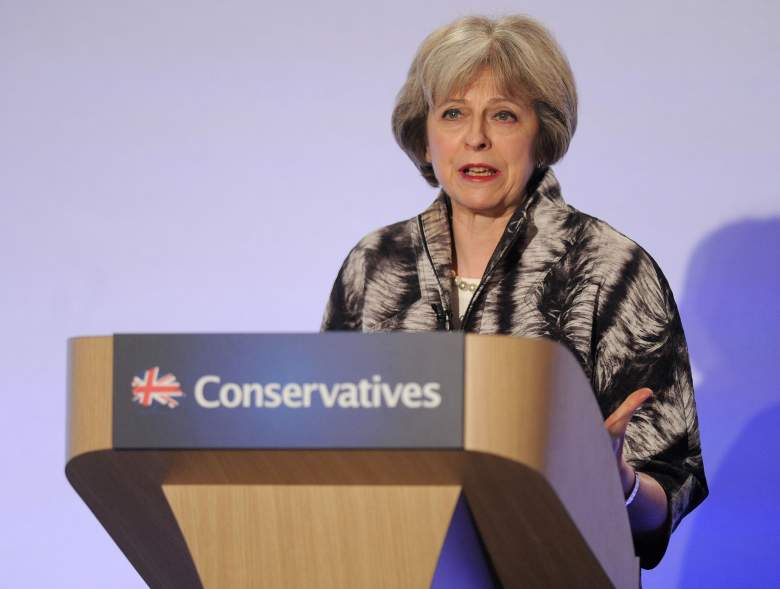
May at the 2014 Conservative Party Spring Forum. (Getty)
In another controversial decision from her tenure, she supported the use of Terrorism Act 2000 to detain David Miranda, the partner of Guardian journalist Glenn Greenwald in 2013. Greenwald was the journalist who worked with Edward Snowden, the NSA whistleblower. According to the Guardian, Miranda was questioned for nine hours at Heathrow Airport, where he was taking a flight to Brazil. Miranda’s lawyers said that he was detained for an “improper purpose and was therefore unlawful.”
May later defended the detaining of Miranda and said she knew that he was going to be detained at the airport. According to the Mirror, May suggested that, since she believed that Miranda had information that could help terrorists, this was the right thing to do.
“If it is believed that somebody has in their possession highly sensitive stolen information which could help terrorists, which could lead to a loss of lives, then it is right that the police act and that is what the law enables them to do,” May said. She confirmed that she was “briefed in advance that there was a possibility of a port stop of the sort that took place.”
Miranda’s lawyers said that police took his laptop, his cell phone, a smart watch and his video game console. He had to give his passwords for the devices.
4. May Has Type 1 Diabetes, but That Didn’t Stop her Political Career
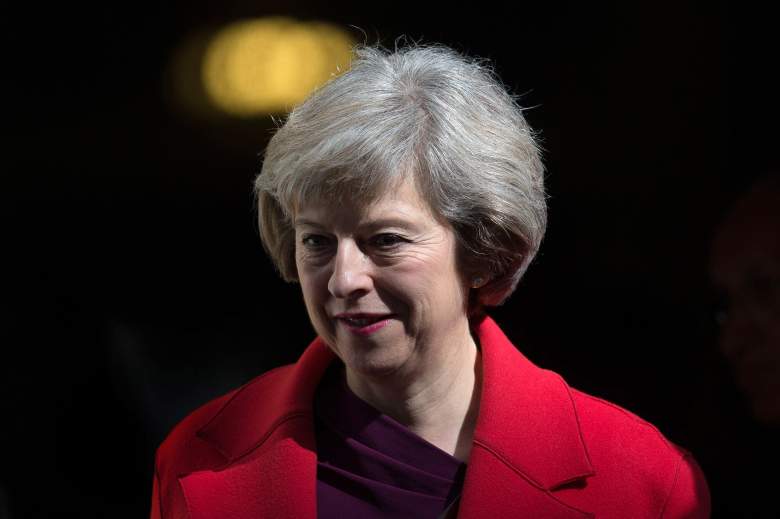
Theresa May in April 2016. (Getty)
In July 2013, May revealed to the Daily Mail that she was diagnosed with Type 1 diabetes after it was noticed that she was losing weight. Obviously, she did not let that stop her political career.
“The diabetes doesn’t affect how I do the job or what I do. It’s just part of life… so it’s a case of head down and getting on with it,” she told the Mail.
There were rumors that she was losing weight because she was planning to run to replace Cameron, but that was not the case. She was diagnosed with Type 1 diabetes in November 2012. She has to inject herself with insulin twice a day.
“It was a real shock and, yes, it took me a while to come to terms with it,” she told the Mail. “It started last November. I’d had a bad cold and cough for quite a few weeks. I went to my GP and she did a blood test which showed I’d got a very high sugar level – that’s what revealed the diabetes.”
5. She Vows to Still Go Ahead With Brexit Even Though She Supported the ‘Remain’ Campaign
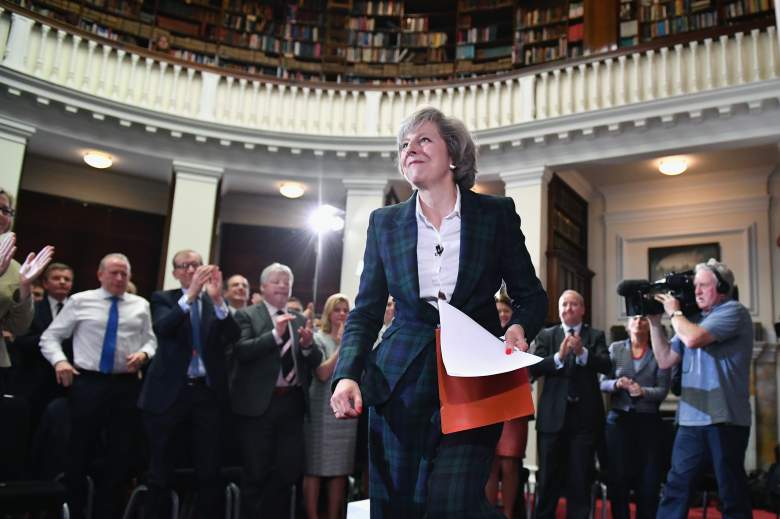
May said that Britain will still leave the European Union. (Getty)
May was not a heavy campaigner before the Brexit referendum, but did support the Remain side. When she announced plans to run for the Conservative leadership, she said that she will follow the will of the people, but leaving the European Union will take time.
“Brexit means Brexit,” May said in her statement today. “The campaign was fought, the vote was held, turnout was high, and the public gave their verdict.”
She said there must not be a second refurrendum and no general election until the next scheduled one in 2020. Britain also should not invoke Article 50 to leave the EU “before the end of the year.”
“We should make clear that for the foreseeable future there is absolutely no change in Britain’s trading relationships with the EU or other markets,” May continued. “And until a new legal agreement is reached with the EU, which will not happen for some time, the legal status of British nationals living or working in Europe will not change – and neither will the status of EU nationals in Britain.”
May also cited her successes, including stopping the extradition of hacker Gary McKinnon in 2012 and deporting Abu Qatata to Jordan, as examples of her getting difficult jobs done. She ended her statement by suggesting that she will be ready to step in as Prime Minister on day one.
But if ever there was a time for a Prime Minister who is ready and able to do the job from day one, this is it. We have immediate work to do to restore political stability and economic certainty, to bring together the Party and the country, and to negotiate a sensible and orderly departure from the European Union. But more than that, we have a mission to make Britain a country that works not for the privileged and not for the few but for every one of our citizens.
In another speech on July 11, May vowed that there will not be a second Brexit vote. “Brexit means Brexit and we’re going to make a success of it,” she said.
